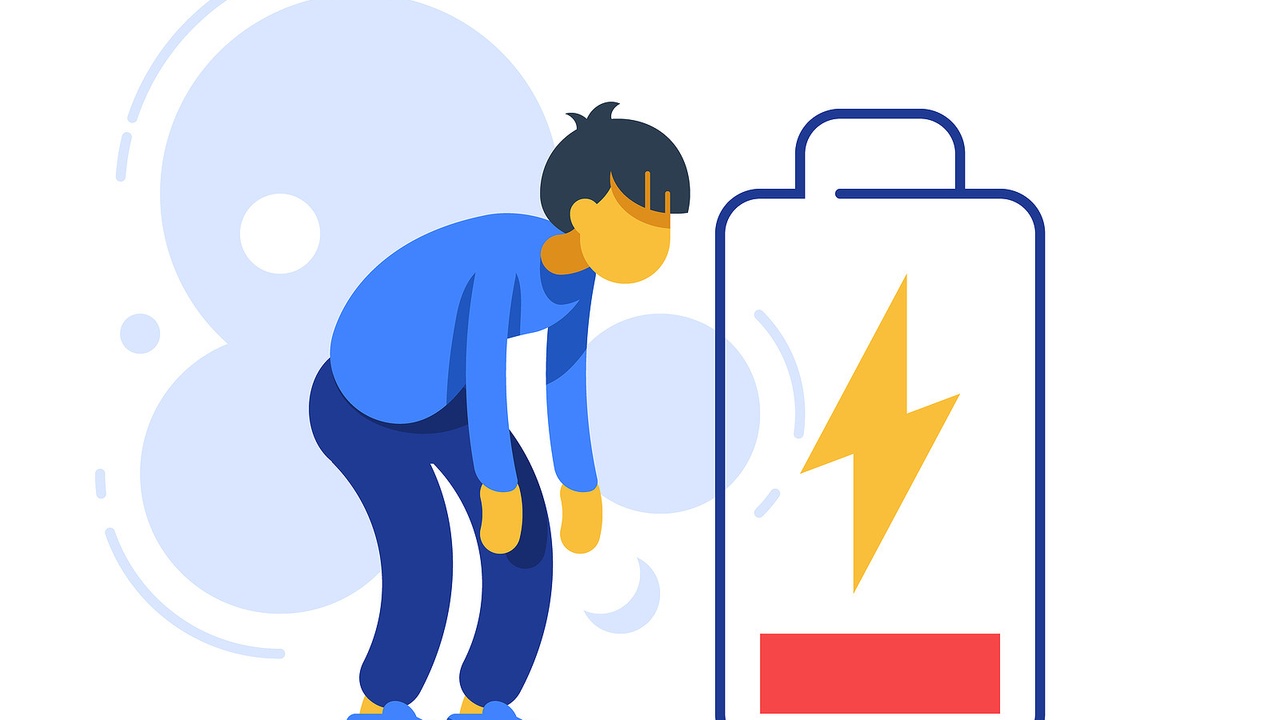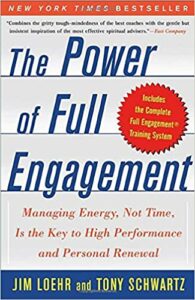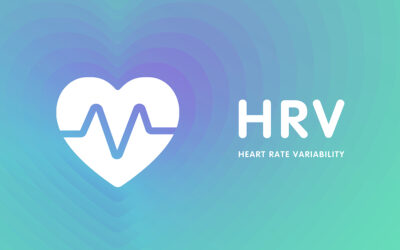Has this ever happened to you?
At the end of a long workday, you come home tired and hungry. Although there is time for a workout, you feel drained. You are unmotivated. So, instead of lacing up your running shoes and heading out the door, you reach for a beer and a snack! It’s definitely happened to me! Yes, there was time in my day to exercise. However, I had no energy.
Principle 1: Full engagement requires drawing on four separate but related sources of energy: physical, emotional, mental, and spiritual. The capacity of each is measured in terms of strength, flexibility, endurance, and resilience. Physical energy ranges from low to high. Emotional energy spans from negative to positive. When we feel invigorated, confident, challenged, joyful, and connected, we have high positive energy.
“To be fully engaged, we must be physically energized, emotionally connected, mentally focused and spiritually aligned with a purpose beyond our immediate self-interest.”
Principle 2: Energy capacity diminishes both with overuse and with underuse. So, we must balance energy expenditure with energy renewal. I had an “Aha moment” when I first read this. For years, I found it easy to pushing myself to work, exercise, and socialize. In fact, I pushed to the point of exhaustion. Then, I became injured. Unfortunately, it’s hard to follow the advice of rest and recovery. But it’s important! We need to view renewing activities as an essential part of the energy cycle and not just a waste. Also, I didn’t want to be seen as lazy or selfish in taking time for me. But here’s the thing. When I realized that I had to relax and slow down, I was finally able to include renewing activities in my day. Then, I began to feel the benefits of increased concentration and efficiency in my tasks.
Principle 3: In order to build capacity, we must push beyond our normal limits. We must train in the same systematic way that elite athletes do. The overload principle applies not only to physical fitness but also to the other energy areas. These areas are emotional, mental, and spiritual. If you expose yourself to just a bit of discomfort in these areas, they will become stronger. Recall the words of Nietzsche. “That which does not kill us makes us stronger.” For example, I’m hoping that joining a meditation group will grow my spiritual energy.
Principle 4: Positive energy rituals are the key to full engagement and sustained high performance. A ritual is a behavior that is based on one of your personal values. It becomes automatic with time. It is just the way you live your life. You don’t even have to think about it. When you first build new rituals, you need to focus. Whether you realize it or not, you have many daily rituals that are based on your values. If you exercise regularly for your physical energy, you value what exercise does for you, such as fitness, weight management, or feeling good. Make sure you have developed rituals to expand and recover your mental, emotional, and spiritual energy, as well.
Try this Activity
Anything you focus on, think about, and spend time doing either consumes or replenishes your energy. Make a list of 3-5 things that are draining your energy. Then, do the same for what lifts your energy. Don’t hesitate to write down little annoyances and big challenges.
When I did this activity, I found something surprising. I identified the leaking coffee pot that I woke up to every morning as a regular energy drain. I spent extra time fussing with it and cleaning up. It put me in a frustrated, negative mood. This is not the way to start each day! Needless to say, this was an easy fix. However, the unsatisfying job I had was more difficult to remedy. When I switched my work to something more in line with what I valued and enjoyed, I was able to work longer and harder with less energy.
“The ultimate measure of our lives is not how much time we spend on the planet, but rather how much energy we invest in the time we have.”
Resource: The Power of Full Engagement, Jim Loehr and Tony Schwartz




